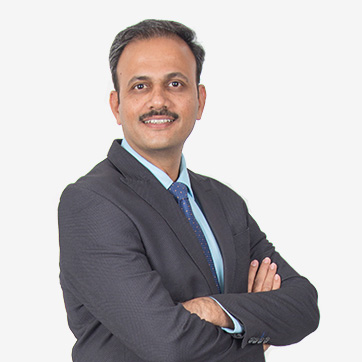
If you or someone you know has been affected by an injury or disease that has resulted in the loss of a body part, vascularized composite allotransplantation may be an option. Get the best treatment from Dr. Nilesh Satbhai in Mumbai. Book your appointment today!
Vascularized composite allotransplantation (VCA) refers to the transplantation of multiple tissues, such as skin, tendon, nerve, muscle, fat, lymph nodes, and bone, as a functional unit.
VCA is mainly for the life-enhancing purpose of achieving functional recovery and patient satisfaction. Vascularized composite allotransplants are grafts that are composed of multiple different tissues but are transplanted all together as one unit. An example is a hand graft, which consists of muscles, bones, skins, vessels, and nerves.
The composite tissues transplanted usually include the upper extremities, such as
During the consultation for vascularized composite allotransplantation, Dr. Nilesh Satbhai will review your medical history and conduct a physical examination. During the physical examination, Dr. Nilesh will evaluate the condition of your skin, the underlying tissue, and blood vessels. Dr. Nilesh will also assess your ability to tolerate the surgery and the potential risks involved.
After the review and physical examination, Dr. Nilesh will discuss the procedure in detail with you and answer any questions that you may have.
A face transplant might be a treatment option for you if you have severe damage to your face or you have a visible difference in the appearance of your face. A face transplant replaces all or a part of the face with the donor tissue from someone who has died.
A face transplant is a very complex operation that requires months of planning and multiple surgical doctors. The face transplant procedure is performed in only a few transplant centers worldwide.
Face transplant is performed to improve the quality of life if you have experienced severe trauma, burns, disease or birth defects that affected your face. A face transplant is intended to enhance both appearance and functional abilities, such as chewing, talking, swallowing, and breathing through your nose. It is also done to reduce the social isolation that you experience while living with visible differences in your faces.
You are an ideal candidate for a face transplant if you:
Once you’re approved for a face transplant, you will have to wait for a donor’s face, and when matching you with a donor face for a transplant, your surgeons will consider these factors:
In the meantime:
Getting a transplant done can result in an improved ability to:
Your results will be affected by:
A face transplant is a complex and lengthy procedure. Following are the risks of a face transplant:
Dr. Nilesh Satbhai puts the safety of patients above everything else, taking every precaution to avoid any risks or unpleasant occurrences.
A trachea and larynx transplant is a procedure in which a damaged voice box (larynx) and windpipe (trachea) is replaced with a new one. Your larynx enables you to speak, eat, and breathe, whereas your trachea connects your larynx to the lungs.
This procedure is complex, but it may restore your ability to breathe, eat and speak, allowing you to live a more active life.
When you have a damaged trachea and larynx and you have undergone other treatments which did not work, you may need a trachea transplant.
Some of the reasons that you might need a trachea transplant include:
Trachea transplant may be an option if the below treatments have not helped you:
You can expect the following during your trachea/larynx transplant:
Risks of trachea/larynx transplant include infection and bleeding. Your immune system might reject the new trachea. All these risks are rare. By following Dr. Nilesh ’s instructions, you can reduce these risks.
Abdominal wall transplantation is a type of composite tissue allograft that can be used to reconstruct the abdominal wall of patients undergoing intestinal transplantation.
Abdominal wall transplant is indicated when:
Risks of abdominal wall transplant are uncommon but involve sepsis or infection, sometimes fistula formation, and mild to moderate pain. Dr. Nilesh will take every precaution to avoid any risks or unpleasant occurrences from happening.
The advantage of VCA over the conventional reconstructive methods is its ability to give you aesthetically and functionally superior equal composite substitutes to the missing or deformed part.
The cost of VCA varies depending on the type of procedure, the location of the transplant, and the complexity of the surgery. During the consultation, Dr. Nilesh Satbhai will go over the expected costs with you.
Request Appointment
MBBS, MS, MCh
